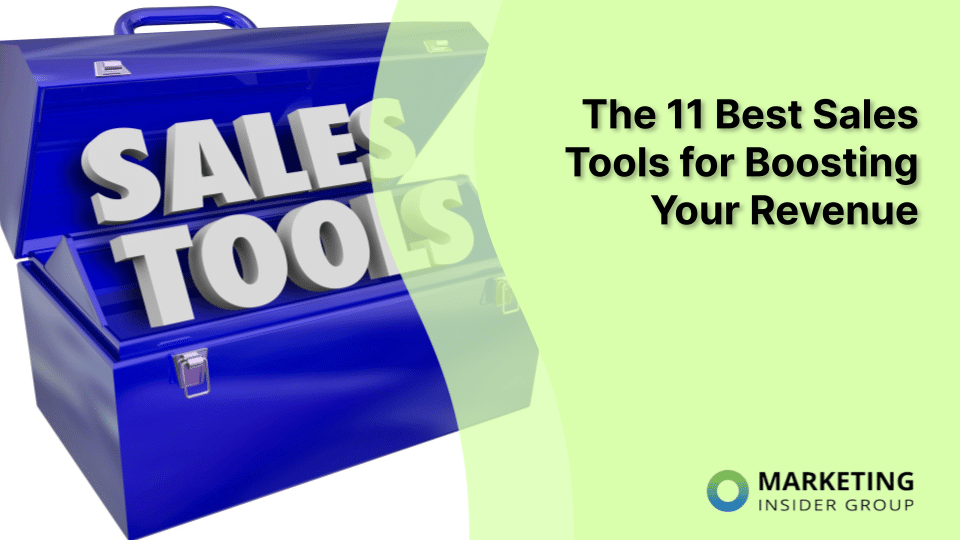
The 11 Best Sales Tools for Boosting Your Revenue
Sales teams are all about efficiency. The faster they can get from contact to contract, the better.
Sometimes, increasing sales velocity means investing in training. Other times, it requires reconfiguring team roles. But the easiest way for most teams to convert more leads is simply to get better tools.
Technology can accomplish a lot of work in very little time, working even when you’re not. Using automation and data tracking helps you make quicker and smarter sales decisions, increasing revenue while saving you time and effort.
If you’re ready to take your sales game up a notch, consider one of these:
1. Calendar
Part of being amazing at sales is eliminating barriers within your sales process. Making it as simple as possible for somebody to schedule a meeting is vital to this process, and Calendar certainly does that for your sales team. Calendar is one of the best calendar apps that boasts a variety of features that can streamline your efficiency and help you close sales faster than before.
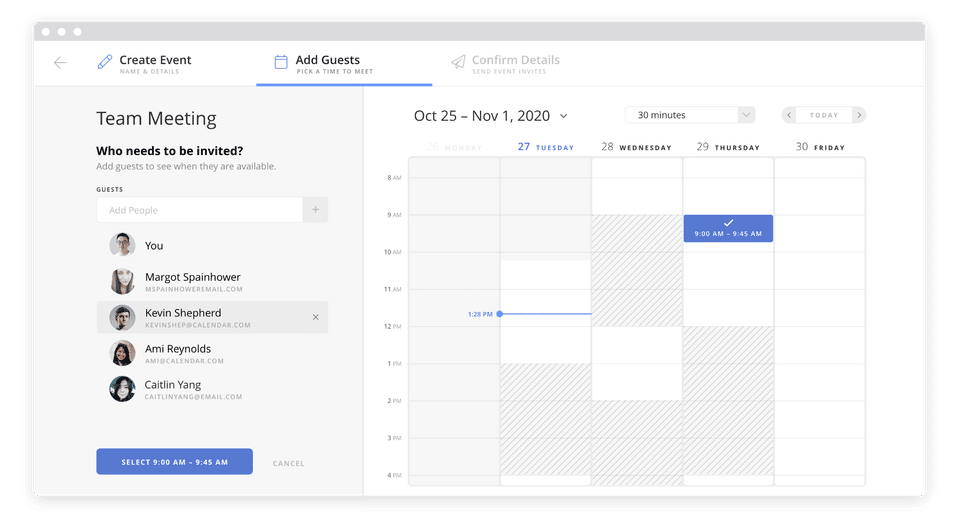
Calendar tracks how you use your time and compiles that information to give you a data-driven view of how you spend each day. Optimizing your time creates more room for sales meetings and more opportunities to build customer relationships.
For sales reps who organize a lot of meetings with clients, Calendar has provided a solution to a problem you might not have known you have. A lot of time is wasted deciding on where and when to meet.
2. LinkedIn Sales Navigator
LinkedIn is the ultimate website for making business connections. Its layout offers a social media feel, but it’s more practical and professional in its use. This is a great location to connect with other executives and learn from industry leaders.
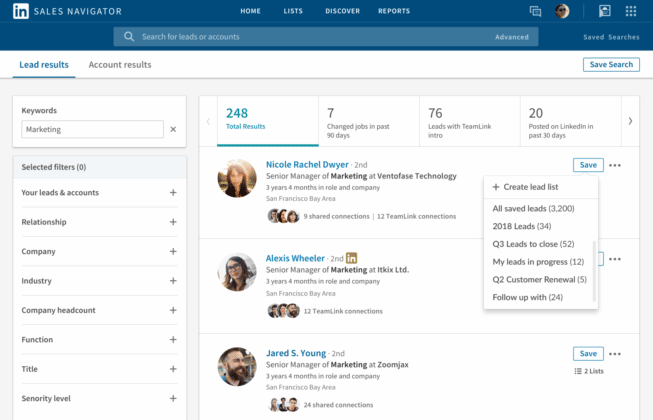
LinkedIn’s Sales Solutions program enables you to use this network to improve your lead search. Working through LinkedIn Sales Navigator is especially helpful for making business-to-business sales and building relationships with other companies.
LI’s Sales Solutions offerings use formulas to target new leads by locating the best people to reach out to, ultimately saving you time. Use the in-depth search tools or follow the recommendations for potential connections. Once you’ve built up some lists, they can be easily organized within the software for quick access at any time.
3. Salesforce
As its name suggests, Salesforce is one of the most popular CRM software packages available, with a 4.2 star average rating from more than 10,000 reviews on G2.

Salesforce uses a variety of tools to help you accomplish your goals. They aim to help you:
- Establish long-term relationships with customers.
- Save time by automating workflows.
- Access data at any time with multi-platform capability.
- Drive growth by tracking new trends and emerging markets.
Salesforce shows off this incredible diversity with additional solutions for small businesses or e-commerce companies. Specialized tools help these unique business entities more than a one-size-fits-all program would.
4. HubSpot
Automation is your best friend when it comes to improving your sales and marketing strategy. Not only does this save you time, but it also provides trackable data so you can evaluate the performance of your campaigns.
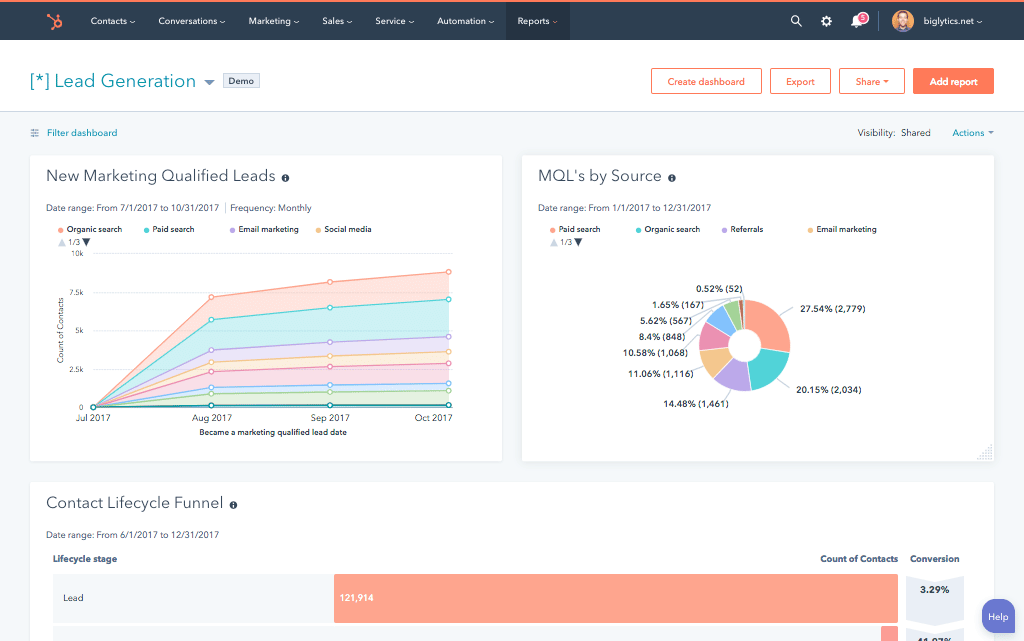
For example, HubSpot provides free email marketing tools and automation to create templates for reminders, follow-ups, and sales pitches. HubSpot can then track those messages and see how many are opened and whether customers are interacting with them. You can use this data to see what’s working and what’s not, making changes accordingly.
Most of your deals may come from human interaction. Use HubSpot’s live chat integration to connect with prospects the moment they enter your website. You can answer questions without the need to email back and forth or go through the frustrations of a customer service hotline. You can also use live chats to schedule meetings and phone calls to further aid customers if need be.
5. ProfitWell
Achieving growth via subscriptions seems pretty straightforward — you fulfill one person’s needs and get a two-pronged reward: a recurring sign-up and great word-of-mouth marketing to garner more referrals. But any subscription-based business can tell you it’s not quite that simple. That’s where ProfitWell comes in.
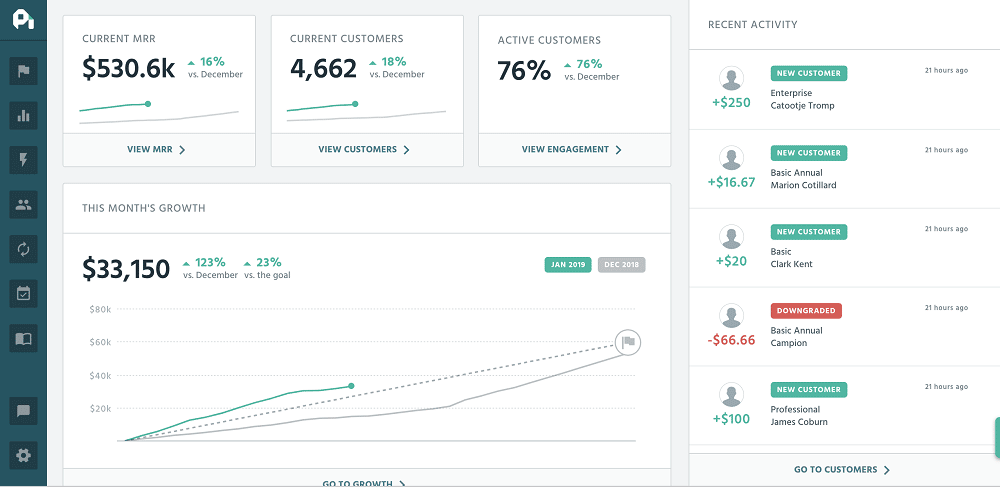
ProfitWell creates benchmarks across industries, enabling you to see how your metrics stack up to others’. This empowers you to spend time and money where it will make the biggest impact.
The platform’s other tools — from payment tools designed to reduce credit card failures to pricing audits — help you pinpoint sales roadblocks. Beyond identifying these problem areas, the tools help analyze what your next step should be.
6. CircleBack
Building relationships with your customers is one of the best ways to close more sales and improve retention. Keeping track of all your contacts and leads can be a challenge, which is where CircleBack steps up to the plate.
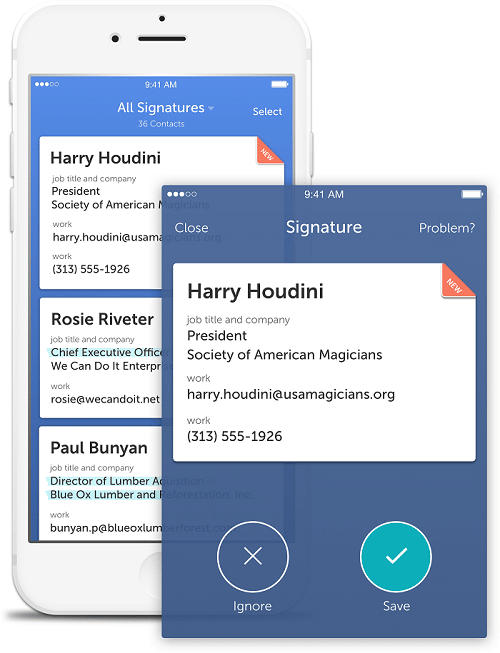
CircleBack uses its automation to update your contacts for you, including merging existing contact information to eliminate duplicates. When you receive an email from an unknown contact, the person’s information can be saved and remembered. You can even scan business cards so the contact info can be stored online alongside everything else.
CircleBack can be integrated into Salesforce, combining two valuable software options into one powerhouse. This allows you to keep all of the tools you need in one place.
7. Jiminny
The best salespeople are the ones striving to be better. For this reason, many companies have sales leaders or sales coaches for their teams. Jiminny empowers these leaders to raise their team’s performance to the next level. Note that this program is specifically tailored to over-the-phone sales teams.
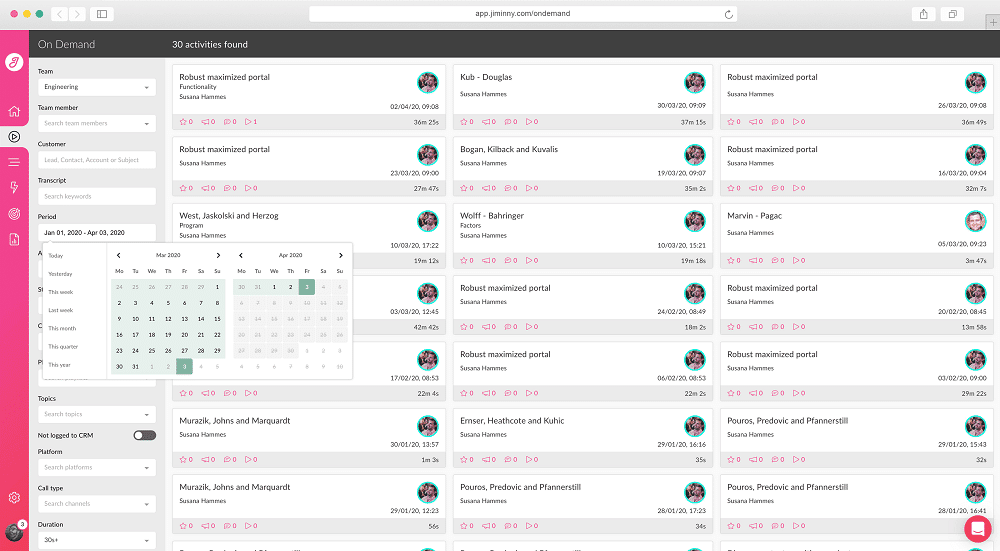
Jiminny records and stores conversations with — and provides easy access to — sales coaches for instructional use. This provides a way to note trends among both salespeople and consumers. It can be hard to gauge how customers really feel over the phone, but Jiminny allows you to easily compare conversations with the feedback it provides from surveys and reviews.
8. Salesmate
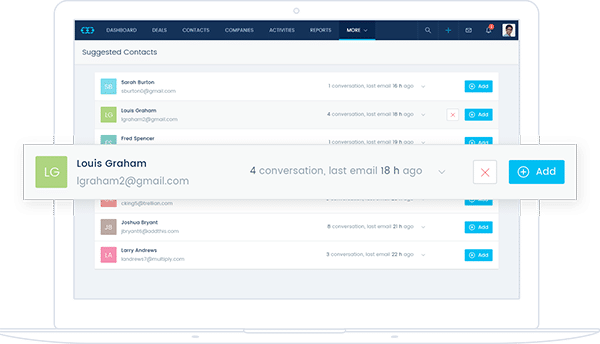
Are you starting to lose a prospect? Is one growing into a greater source of profit in the long term, and should be carefully maintained? Salesmate is meant to organize and optimize the sales process so that you are not losing valuable leads
No more manual data entry, or combing through social media posts on Twitter and LinkedIn. Salesmate will do it for you, creating reports that track customers and their prospects
9. People.ai
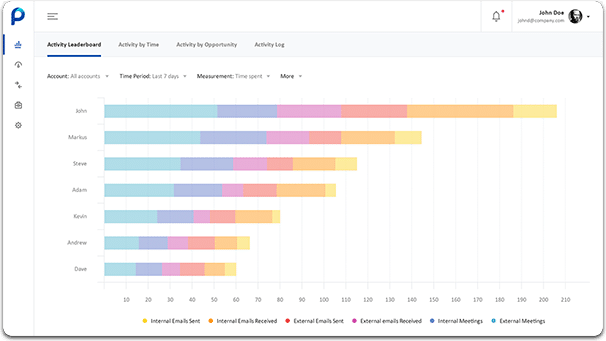
When you look at the creators and founders of this tool, it is hard not to be impressed: people who have worked on LinkedIn, at IBM, at Cisco, with Facebook, ect. In other words, people behind People.ai are experienced technology pioneers with plenty of former glory under their belts.
Now they have made a tool that lets you keep an eye on your sales team, so you always know what is going on. Each person on the team will get reports stating what they are doing right, and what they need to improve. So you can work to get everyone up to a perfect score, and improve your sales results across the board.
10. Ontraport
Sales automation frees your team from mind-numbing, time-consuming tasks like data entry. CRM Ontraport’s sales force automation lets companies customize their own system to not only manage sales workloads, but also track leads with a visual pipeline; send email and SMS follow ups; and forecast the value of each lead. Known for its integrations, Ontraport users can hook the tool up to Quickbooks, Google Calendar, JotForm, and more.
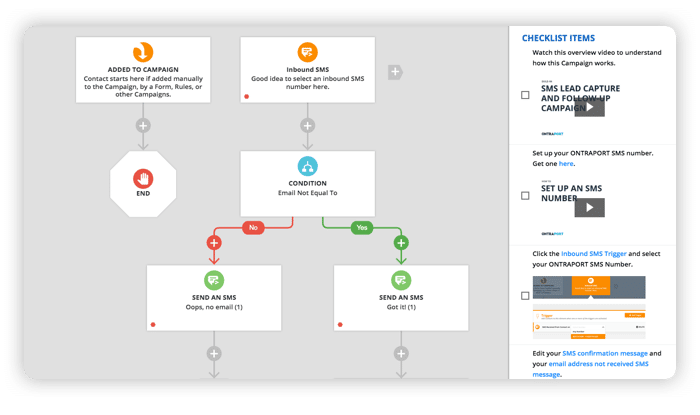
To make sales even more hands-off, Ontraport makes it easy to set up partner programs. Created programs track when partners make a sale, giving them a platform to monitor their sales and commissions. By giving partners commissions on your product, you gain more customer relationships without additional work.
11. Attach
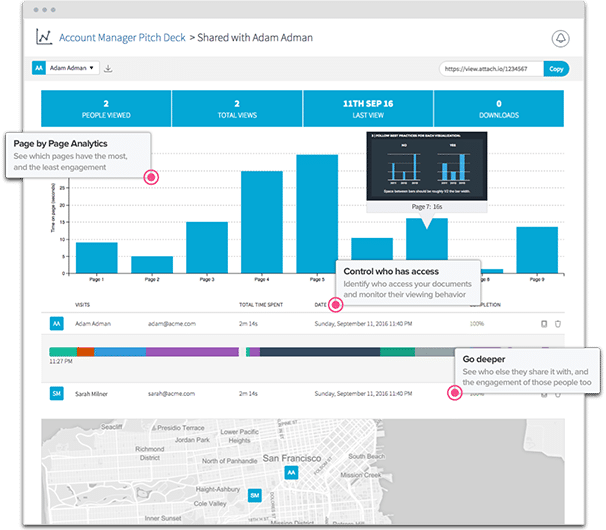
I have a little story for you. When I was working for this health client, I was writing docs all the time that would later be used for a free ebook we were offering to boost email subscribers. The plan was to make a bunch of loose blog style posts that could be published on the site, then gather them all and paste them together with some editing to make the ebook… standard content recycling.
What I didn’t know was that my client was sending those docs to others in the industry, and they were becoming a hit. I eventually found out and managed to use it as a lead generation tool for my own services. But by not being aware early on, I lost potential clients.
Attach deals with just that kind of scenario; it tracks your docs, tells you who is reading them, and where they are ending up. I wish it had been around when I needed it!
All Yours!
Even the best companies can get better. If you don’t keep moving forward, you’ll fall behind. Using sales software takes you to the next level. Experiment with these to find what works best for your company — and witness the change it prompts in your sales and marketing.






